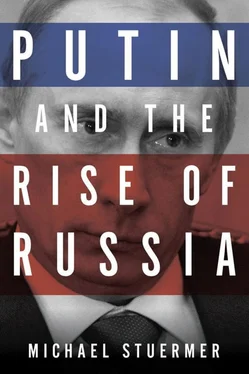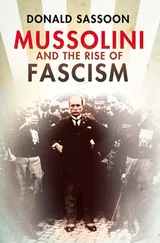The new Great Game is not about forward-based Cossack regiments, nor is it about T 34 tanks or SS 20 ‘mirved’ missiles but about oil, gas, and pipelines. The Kremlin, far from reconstructing the overstretched Soviet Union of the past, instead wants to control the natural resources of Central Asia and also the downstream consumer markets. Only a few weeks after having secured the South Stream project with Turkey and Italy – and, possibly, Serbia – another agreement was signed, this time on the supply side, with the presidents of Turkmenistan, Uzbekistan and Kazakhstan, all of those countries having vast amounts of gas to sell from their landlocked fields and, if possible, into different directions, to China for instance, or to Iran. The Kremlin strategy is to make sure that pipelines are under Russian control. While Gazprom creates facts on the ground, EU summits can continue to recite pious wishes for European energy independence. Only a few weeks after the contracts with Austria’s OMV, Italy, Bulgaria and Turkey had been signed, Gazprom clinched a deal with the Serbian gas and oil monopoly, closing the gap between the Balkans and the Adriatic Sea and Italy – and possibly Algeria. This strategic move cost Gazprom no more than what the Financial Times called a ‘bargain price’ (26 January 2008) in return for guaranteeing Belgrade a key role in shipping gas to Western Europe and handsome fees (€200 million per annum) for transit. In the financial auction for Serbian political loyalties the European Union, anxious to protect Kosovo’s precarious independence, had wooed Belgrade by waiving some of the stiff entry conditions to the EU and offering a substantial stabilization package. But Gazprom, bidding on behalf of the Kremlin, outsmarted the Brussels eurocrats. It was the looming Kosovo question that secured for Russia Inc. both a powerful political presence and a controlling stake in south-eastern Europe’s energy future.
Gazprom, aka the all-powerful ministry of gas technology of Soviet times, has found its new incarnation as a state monopoly, and more often than not it is difficult to decide whether a certain strategy is business-based or a political move. Where the Soviets feared to tread, Gazprom goes global, much as the Chinese do, and no less than the US. Concessions in Bolivia, for instance, were added to Gazprom’s portfolio in the second half of 2007.
Another scramble for Africa
This, however, was not enough. In 2008 the New Year was greeted with a mega-deal: ‘Gazprom plans Africa gas grab’ was how the Financial Times revealed a Russian bid for Nigeria’s vast reserves on 5 January 2008. Gazprom was offering to invest in energy infrastructure in return for the chance to develop some of the biggest gas deposits of the world. In 2007, Putin had written to Nigeria’s leader Umaru Yar’Adua, in power since April of that year, to seek energy cooperation. What Russia offered seems to have overwhelmed the Nigerians. ‘Mind boggling,’ as one of the Nigerian officials close to the deal admitted. ‘They are ready to beat the Chinese, the Indians and the Americans.’ In this list of global players, with Russia in pole position, the Europeans were not even mentioned. Gazprom happily confirmed that a deal was on its way: ‘We made a decision to go global in terms of acquiring assets and developing strategy outside Russia. Africa is one of our priorities.’
In the recent past, Nigerian energy had been dominated by Royal Dutch Shell, Chevron and Exxon from the US. They concentrated mostly on oil, Nigeria being Africa’s biggest producer of crude. Growing demand for natural gas and the capacity to cool it down to liquid status and transport it safely have changed the equation. The Russians seem to have recognized that gas production was under-performing, and taken their chance. With Gazprom and the Chinese state monopolies bidding against each other, the market turns in the direction of state-backed companies challenging Western rivals. What Gazprom proposes is to win gas exploration blocs and, in return, approval to build LNG plants. In 2006, the lion’s share of Nigerian LNG still went to Spain and France (7.10 and 4.23 billion cubic metres respectively). The US had a meagre 10 per cent share, just ahead of Turkey, with all others far behind. Over the past five years, Western companies had invested USD 5 billion in LNG, yielding a revenue of USD 9 billion.
The move into Africa is not without risk for Gazprom, and it will demand deep pockets. Because multinationals, together with the state-owned NNPC, already control most of the gas fields operating, Gazprom will have to take a gamble and go into the costly and uncertain business of exploration. If that proves too costly, they will concentrate on capturing the gas that comes with the oil, normally burnt in a singularly wasteful process called flaring (environmentalists estimate that about half of the world’s gas production is thus burnt away). The Russians are in for a huge challenge, both from the hostile nature of the terrain and the climate and from the enduring social and political violence in the Niger Delta, where most of the resources are. But they would not go in if they weren’t sure that the gamble will pay both in energy terms and in political influence. A new scramble for Africa, more than a hundred years after the first one, is under way. Gazprom’s move is an unprecedented foray into the global competition for African energy assets. In military terms it would be recognized as a bold pincer movement.
It is foolish for policy advisers and politicians in the West to deny that Russia is a great power or that its influence continues to grow. For each concession Russia makes, whether over Kosovo or over arms control, the Kremlin quotes a price.
Putin became president in 2000 when Russia’s foreign reserves were down to USD 8.5 billion. Today Russia’s economy is the world’s eighth largest, and foreign reserves are at close to USD 500 billion. It is no longer the Warsaw Pact’s tanks that are threatening European security, but the ever growing dependence on oil, gas and pipelines from Russia, the inability to come up with a coherent and sustainable energy strategy, and the fear of ‘sovereign funds’ gobbling up with their petroroubles ever larger chunks of European industry. The currencies of power have changed. The methodology of power has become more civilized, but the essence of power is still the same. Nowhere is this better understood than in the Kremlin.
What the spookocracy in the corridors of power fails to understand is the fact that the biggest threat to Russia’s future is not foreign enemies but the combination of various factors, all domestic in nature: the looming demographic crisis, the absence of long-term confidence in the leadership, the weakness of the industrial sector still relying almost exclusively on natural resources, the universal corruption and the stifling of transparency, free press, and answerability in the public domain; in short the severe shortcomings of the political culture. What does all of this tell us about the future actions of Russia? Russia’s objectives and performance in the world cannot be divorced from the rules of the game at home.
A U-turn back to the Soviet Union is as unlikely as an enthusiastic conversion to West European or American ways and means. The West’s best hopes were expressed by Dmitri Trenin in his essay ‘Getting Russia Right’ (2007) : ‘Russia is probably not going to join the West, but it is on a long march to become Western, “European”, and capitalist, even if not for a long while democratic. I mean European in terms of civilization rather than part of the European Union, and gradually more Western than pro-Western (or pro-American). Russia will matter in the foreseeable future, and that is why it is important to read it right.’ The outcome will depend on Russia and Russian power elites, first and foremost. But it also depends on the West and on the kind of competition the West manages to put up. If it is, as it should be, the overriding objective to turn the face of Russia and the Russians towards the West, then the presumption must surely be that the transatlantic system gets its own act together, that Western capitalism does not fall apart, that governments and central banks manage their economic and financial affairs with competence, that Western welfare states do not succumb to their inherent weaknesses, mountains of debt and inflationary pressures and that Western leaders find the right balance in managing Russia. Neither an enemy nor a friend. Russia is still in the process of redefining itself and, by implication, its relations with the West.
Читать дальше











